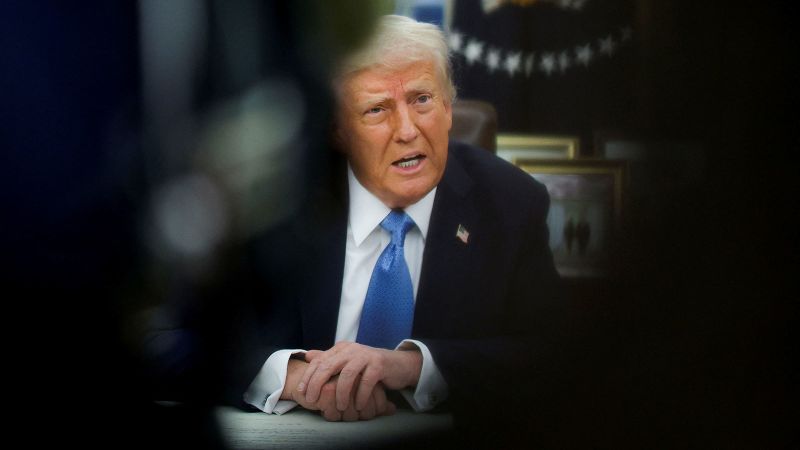Trump's Trade Showdown: Tariff Deadline Looms as White House Tensions Rise

Trump Doubles Down on Tariff Threats: Trade Tensions Escalate
In a bold move that underscores his unwavering commitment to his economic policy, President Donald Trump today reaffirmed his intention to impose substantial tariffs on key trading partners, including Canada, Mexico, and China. The announcement signals a continued hardline approach to international trade relations.
Despite ongoing diplomatic negotiations and potential economic repercussions, Trump remains steadfast in his strategy to protect American economic interests. The proposed tariffs are expected to have significant implications for global trade dynamics and could potentially reshape international economic relationships.
Stay tuned for live updates on this developing story as the administration provides more details about the proposed tariff implementation and potential international responses.

